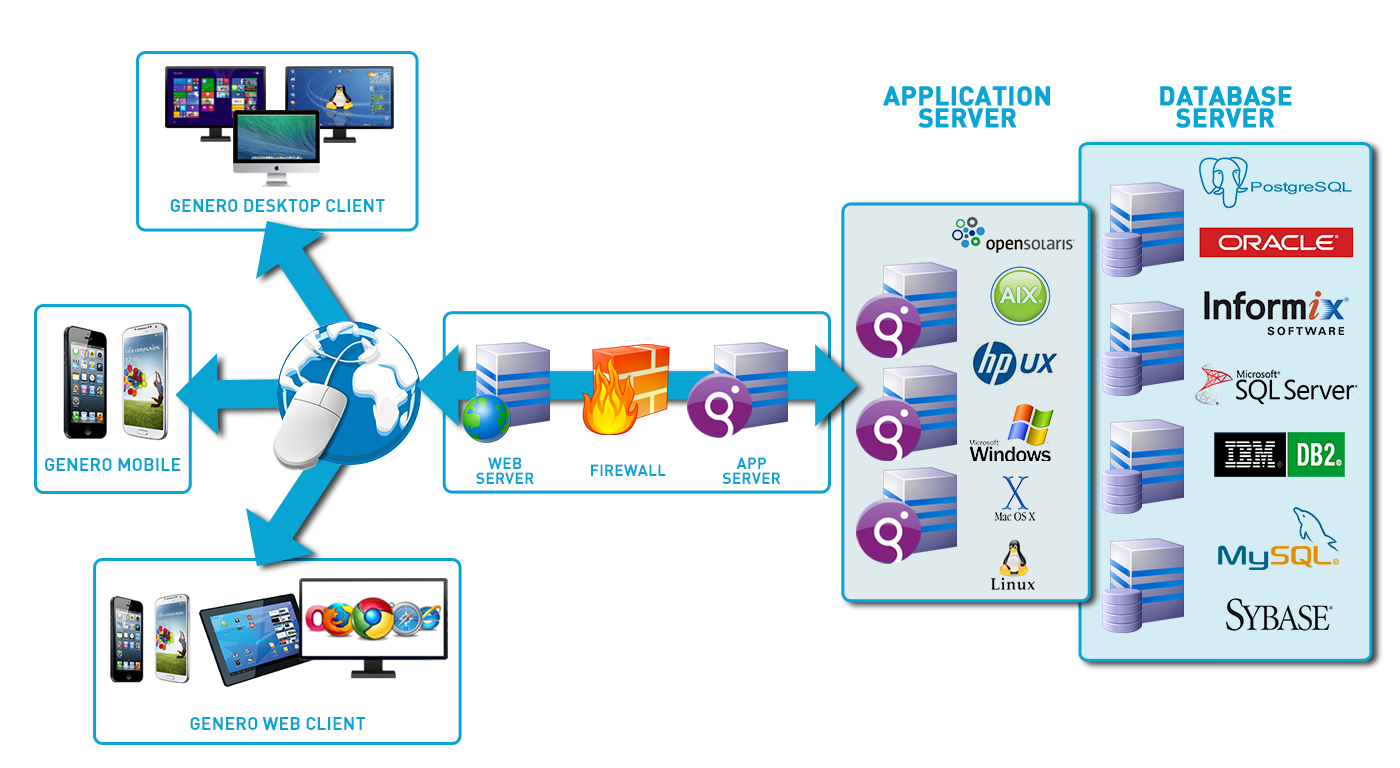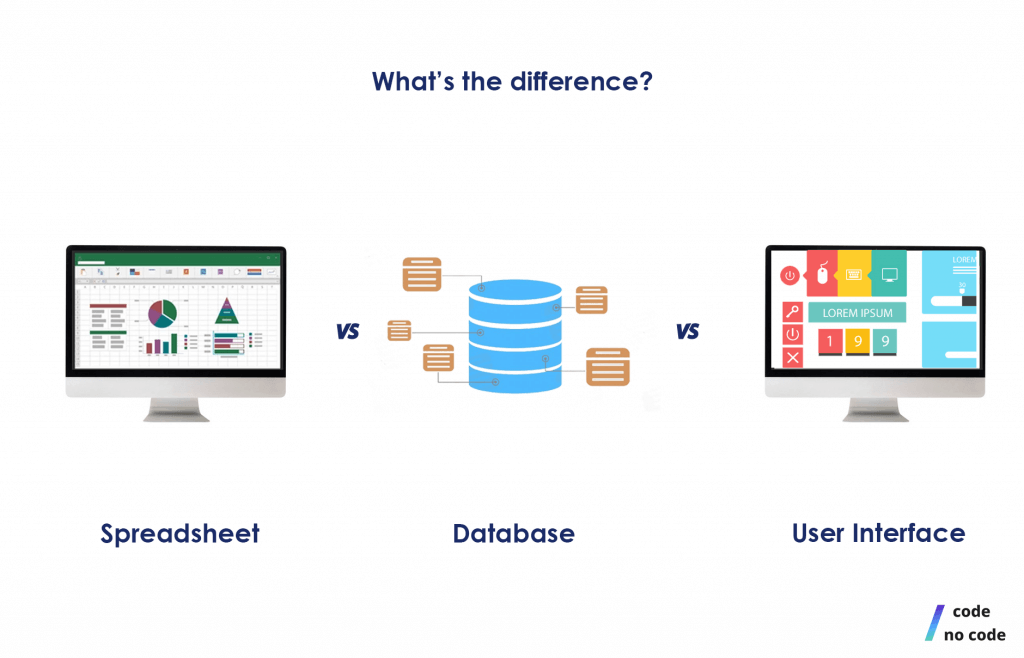Produce Open System Databases Quickly with the most effective No-Code Equipment Available
Produce Open System Databases Quickly with the most effective No-Code Equipment Available
Blog Article
Checking Out the Advantages of Scalable Databases That Need No Coding Skills for Effective Information Management Solutions
The introduction of scalable databases that remove the need for coding abilities offers a transformative chance for organizations looking for reliable data monitoring services. As we consider the effects of such improvements, it comes to be crucial to take a look at how they can reshape the landscape of data administration and drive sustainable growth in an affordable environment.
Boosted Access for Customers
Improved ease of access for users is a critical element of scalable data sources, ensuring that information monitoring systems are user-friendly and user-friendly. In a period where data-driven choices are critical, accessibility enables a broader array of customers, consisting of those without substantial technical competence, to engage with database systems effectively. This democratization of data access helps with boosted collaboration throughout divisions, encouraging workers to extract insights and make educated choices.
Straightforward interfaces, such as drag-and-drop features and aesthetic information depiction, simplify intricate data interactions. These enhancements minimize the knowing contour connected with traditional database monitoring, enabling users to concentrate on leveraging data instead of coming to grips with technical complexities. In addition, scalable databases typically integrate real-time analytics and personalized control panels, providing users with prompt understandings tailored to their details needs.

Cost-Effectiveness and Resource Financial Savings
Reliable information administration not only rests on ease of access however likewise on cost-effectiveness and resource financial savings. Scalable databases created for users with no coding abilities substantially minimize monetary concerns usually associated with traditional data source administration systems. By eliminating the need for specialized programming expertise, companies can assign their resources a lot more efficiently, concentrating funds on core company tasks instead than extensive training or employing proficient personnel.
Furthermore, these databases usually utilize cloud-based solutions, which further reduce expenses connected to equipment and upkeep. Organizations can scale their data source solutions according to their demands, staying clear of the costs incurred from over-provisioning resources. This versatility implies businesses can adjust to altering demands without incurring unnecessary expenses, leading to significant long-lasting cost savings.
Additionally, straightforward interfaces enhance information access and monitoring processes, minimizing the time spent on management tasks. This effectiveness equates right into labor price financial savings, permitting teams to concentrate on tactical campaigns as opposed to regular upkeep. On the whole, taking on scalable databases that require no coding abilities cultivates a much more cost-efficient strategy to information management, allowing companies to optimize their resources while preserving high degrees of functional efficiency.
Improved Cooperation Throughout Teams
Additionally, scalable databases help with smooth communication among staff member. With user-friendly interfaces that need no coding skills, workers can quickly develop, change, and share reports or dashboards tailored to their specific demands. This democratization of information equips non-technical users to contribute insights, enhancing the collaborative atmosphere.
In addition, these databases support simultaneous access, enabling numerous customers to service the same dataset all at once. This feature enhances efficiency, as groups can involve in joint information evaluation without the threat of variation control concerns. The capability to leave notes or comments directly within the database better promotes discussion and clears up data interpretations.
Streamlined Information Administration Processes
In today's data-driven environment, companies recognize the necessity of streamlined information administration refines to maximize efficiency and accuracy. By leveraging scalable databases that need no coding skills, businesses can simplify their information handling and reduce the intricacies typically connected with standard data source systems. This access equips non-technical individuals to engage directly with information, facilitating quicker decision-making and decreasing reliance on specialized IT personnel.
Streamlined data monitoring processes boost important site process by automating routine tasks such as information entry, validation, and reporting. Automated data assimilation guarantees that details from numerous sources is aggregated effortlessly, eliminating silos and cultivating a linked view of crucial business metrics (no-code). Easy to use user interfaces enable personnel to adjust data quickly, allowing them to create insights that drive calculated efforts without the demand for considerable training.
This efficiency not only accelerates functional procedures yet also reduces the capacity for human error, guaranteeing that data continues to be trusted and exact. Eventually, streamlined information administration processes via scalable databases bring about boosted performance, enabling organizations to concentrate on core tasks while making certain that their data administration methods are effective and try this out effective.
Scalability for Expanding Companies

For expanding enterprises, the ability to scale up or down is crucial. A scalable database can deal with an increase of information produced from new customers, products, or services, guaranteeing that organization procedures stay undisturbed. Moreover, these databases provide the ability to handle peak tons effectively, which is vital throughout periods of fast development or seasonal spikes.
Additionally, lots of scalable data source options are created with user-friendly user interfaces that require no coding skills, equipping non-technical team to take care of information properly (no-code). This democratization of information administration enables organizations to allot sources strategically and reduce reliance on specialized IT personnel
Ultimately, adopting a scalable database not only enhances functional effectiveness yet likewise cultivates an atmosphere where companies can introduce and develop without the restraints of typical database systems. This adaptability positions companies for lasting success in today's affordable landscape.
Final Thought
In conclusion, scalable data sources that require no coding skills give significant advantages for effective data monitoring. These systems improve accessibility for non-technical users, minimize functional costs, and advertise cooperation across groups. By streamlining data administration processes and supplying scalability for expanding businesses, such services visit here enable organizations to adapt to changing demands properly. Inevitably, the adoption of these straightforward data sources cultivates innovation and positions businesses for long-lasting success in a dynamic atmosphere.
Improved access for customers is an essential aspect of scalable databases, ensuring that information administration systems are easy to use and instinctive.User-friendly user interfaces, such as aesthetic data and drag-and-drop features depiction, streamline intricate data interactions. Overall, adopting scalable data sources that require no coding abilities cultivates a more economical technique to data management, enabling organizations to optimize their resources while preserving high degrees of operational efficiency.
By leveraging scalable databases that call for no coding abilities, businesses can simplify their data handling and reduce the intricacies typically linked with traditional data source systems - no-code.Streamlined data administration procedures improve operations by automating regular jobs such as information access, validation, and coverage
Report this page